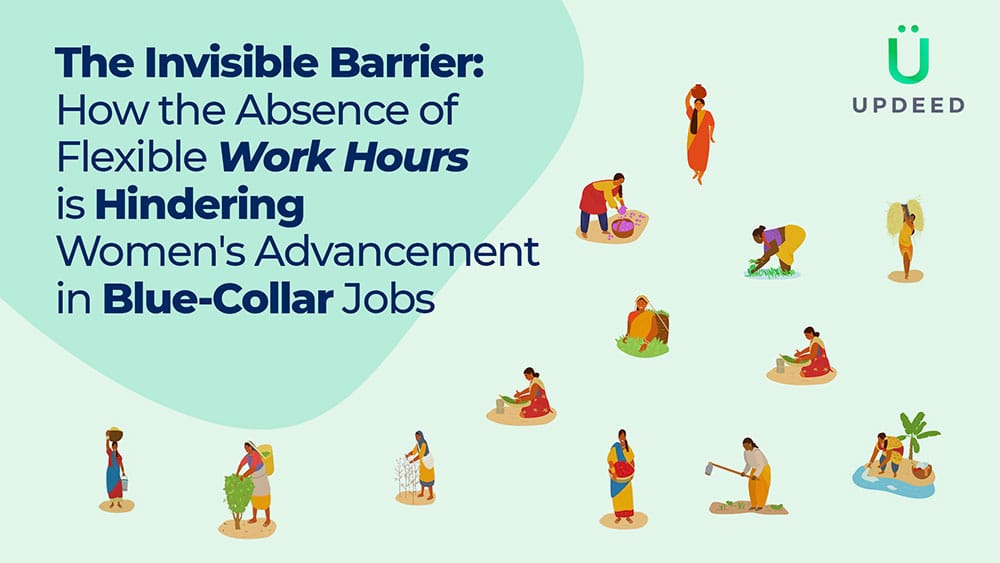The Invisible Barrier: How the Absence of Flexible Work Hours is Hindering Women’s Advancement in Blue-Collar Jobs
According to a Deloitte survey on blue-collar workforce trends covering over 100 companies, and 300 plants across 15+ industries, the male-to-female ratio in blue-collar jobs is still only 12:1. That means there is only one woman for every 12 men in India’s factories, and they are also making lesser money than men.

The reason behind it?
According to Deloitte, the gender gap in blue-collar jobs can be attributed to the persistence of social issues, the absence of flexible work hours and a conducive work environment.
However, our major focus is the lack of flexible working hours.
When discussing gender inequality, the pay gap and underrepresentation of women in leadership roles are often the first topics that come to mind. Blue-collar jobs, such as manufacturing, construction, and maintenance, have traditionally been male-dominated, with women accounting for only a small percentage of the workforce.
It impacts badly
One of the major reasons for this gender gap in blue-collar jobs is the lack of flexible work hours.
Unlike white-collar jobs, which often allow for flexible schedules and remote work options, blue-collar jobs typically require employees to work set hours at a physical location. This makes it difficult for women with caregiving responsibilities, such as caring for children or elderly family members, to balance their work and home life.
Studies have shown that women are more likely than men to take on caregiving responsibilities, which can make it challenging to work traditional blue-collar hours. According to a study by the Institute for Women’s Policy Research, almost half of working women in the United States are employed in jobs that pay low wages and offer limited benefits, making it difficult to afford childcare or take time off work for caregiving responsibilities.
Furthermore, blue-collar jobs often require employees to work long, inflexible hours, which can be difficult for women with caregiving responsibilities. Women who work in blue-collar jobs may be forced to choose between their job and their family, which can result in a loss of income and a setback in their career advancement.
This lack of flexibility in blue-collar jobs also makes it difficult for women to advance in their careers. Many blue-collar jobs require employees to work a set number of hours to move up the career ladder, which can be challenging for women who cannot work the required hours due to caregiving responsibilities.
The COVID-19 pandemic has highlighted the need for flexible work hours, as many parents were forced to balance work and homeschooling their children during lockdowns. However, even before the pandemic, there were efforts to address the lack of flexibility in blue-collar jobs.
Some companies have implemented flexible scheduling options, such as allowing employees to choose their start and end times, which has been shown to increase employee satisfaction and retention.
More needs to be done
In addition to flexible work hours, other steps can be taken to address the gender gap in blue-collar jobs. These include offering paid parental leave, providing on-site childcare, and promoting women to leadership roles within blue-collar industries.
By creating a more inclusive work environment, blue-collar jobs can become more appealing to women, which can help close the gender gap in these industries.
In conclusion, the lack of flexible work hours is a key reason for the gender gap in blue-collar jobs. By offering flexible scheduling options and other family-friendly policies, blue-collar companies can attract and retain more women in their workforce, which can help close the gender gap and promote gender equality in the workplace.
Ready to make a positive impact in the world?
UPDEED is the place for you. Our free and open platform is filled with inspiring stories from individuals and organizations who are making a difference in their communities and beyond. Connect and collaborate with like-minded individuals from around the globe on UPDEED, and discover your own potential to create meaningful change. Join our community and make a difference.





